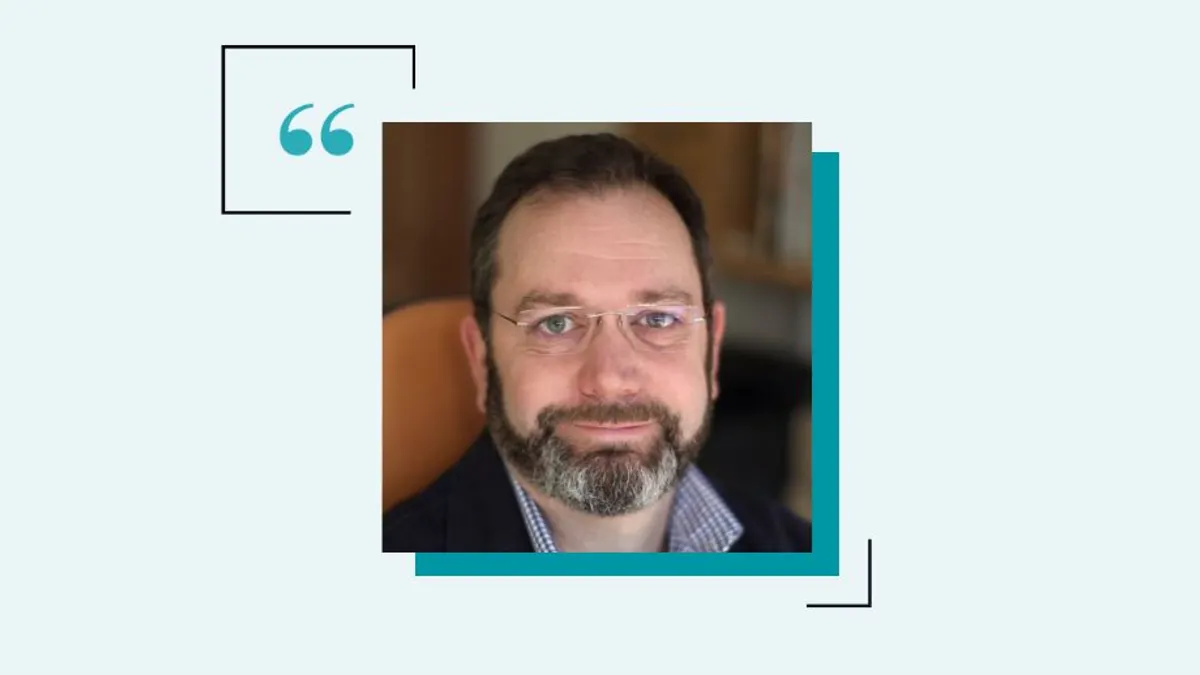"I passionately believe in the power of measurement and understand how it can drive improvement. There is a structured, repeatable, and logical way of coming up with KPIs."
Bernie Smith, the architect and founder of his company Made to Measure KPIs, has dedicated his professional mission to bringing clarity to CFOs and their organizations through measurement and metrics. Finance chiefs' thoughtful and appropriate assignment of measurement metrics — key performance indicators (KPIs) — is the bedrock for determining an organization's highest-value issues and opportunities.
Smith's recent webinar, CFO’s Ultimate KPI Checklist, digs deep into these concepts. As a follow-up, CFO asked Smith to further unpack how finance executives can embrace a KPI mindset.
Bernie Smith | Made to Measure KPIs
- Consultant, trainer, author
- Company founded in 2006
- Past roles:
- HSBC
- Barclays Wealth and Investment Management
- UBS
ANDY BURT: How did you become the 'KPI Guy?'
BERNIE SMITH: The first 20 years of my consulting career were focused on operational problem-solving, initially for global manufacturing businesses, then later for the banking sector. Being a bit of a nerd and having an engineering degree, I often became closely involved in using data to drive improvement. Through this work, two things became clear.
Firstly, good quality information was always a critical ingredient in driving step-changes in performance.
Secondly, it was apparent that a significant portion of most teams had a negative relationship with performance measurement.
I saw fear, uncertainty, and debate when the topic of KPIs came up and set myself the challenge of demystifying the process of selecting and implementing sensible KPIs. That was the backdrop to my first book, "KPI Checklists," and my goal over the past 15 years has been to create and promote straightforward, human-friendly methods for designing and implementing performance measurement and management.
Why do you refer to KPIs as either relevant or irrelevant, rather than good/bad?
SMITH: During my training sessions, I run a 'thought experiment' with each group, asking each participant to nominate their 'best' DIY tool. It's impossible to answer definitively, as 'best' depends entirely on your goal.
A hammer is excellent for putting nails into wood, but less than ideal for putting up wallpaper. KPIs are just the same.
What's best in one situation may be irrelevant in another, so we need to develop a 'clarity of purpose,' and then select our KPIs based on that context. My KPI design method takes its name from this approach — the Results-Orientated KPI Systems (ROKS).
You've talked about leaders needing to be led by principles, but sometimes we don't know what those principles are. How can CFOs refine this approach?
SMITH: Every leader needs to have some idea of their organizational objectives. It's not uncommon for these to be implicit rather than explicit. Having had many strategy discussions over the years, I distilled the common results that most organizations strive for. I call these the 'Big 6.'
If the team is having trouble pinpointing the results they are looking for, the Big 6 can help. The Big 6 are:
- Run a profitable and solvent business
- A growing business
- Meet environment, social, and governance goals
- A legal and compliant business
- An innovative business
- Manage risk
I use these as a starting point for the discussion, customizing the exact wording for their organization.
You espouse the power of measurement and how it drives improvements. What do you say to CFOs who are trying to get their teams on board with this approach?
SMITH: Every single team I've worked with is maxed-out much of the time. We have finite time, resources, and energy. To make the most of our time, we need to answer one simple question with confidence: What are our highest-value issues or opportunities?
Without objective measurement, the answer to that question may well be swayed by personal perspectives and biases, we can waste lots of time on debate and shifting priorities, and it can be tough to get team alignment and agreement.
Is there anything specific about 2023's early challenges that you would encourage CFOs to take into consideration for their KPIs?
SMITH: Two significant long-term trends in the workplace are underway:
- The move to remote working
- The ascent of AI tools
While these may seem unrelated, both challenge the orthodoxy of measuring activity as a proxy for productivity. It will become even more important to focus on measuring meaningful outcomes and results (e.g. customer problems solved to root cause on first contact, customer referrals rate to friends) rather than activity metrics (e.g. number of sales calls made, hours worked).
![]()














